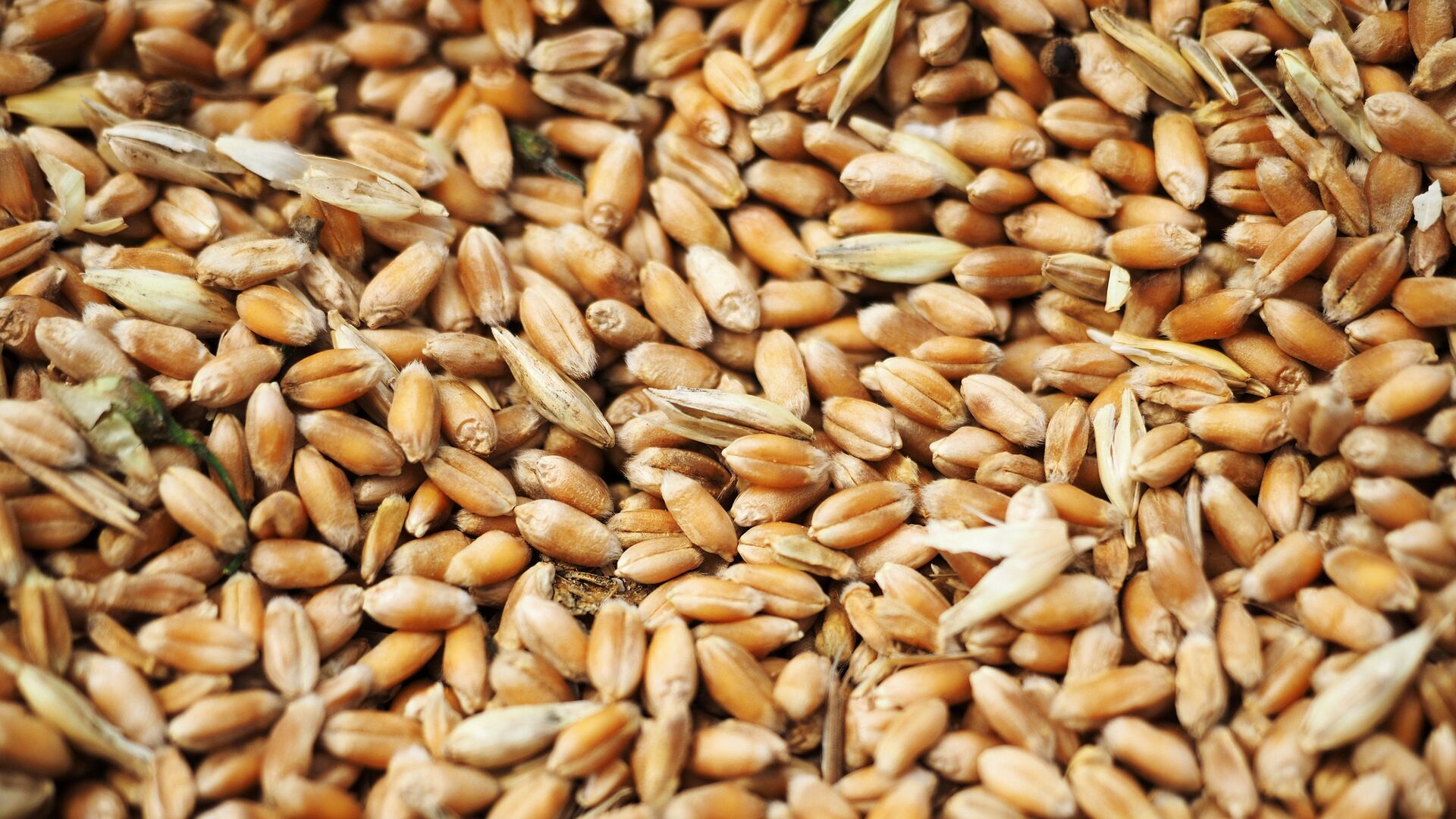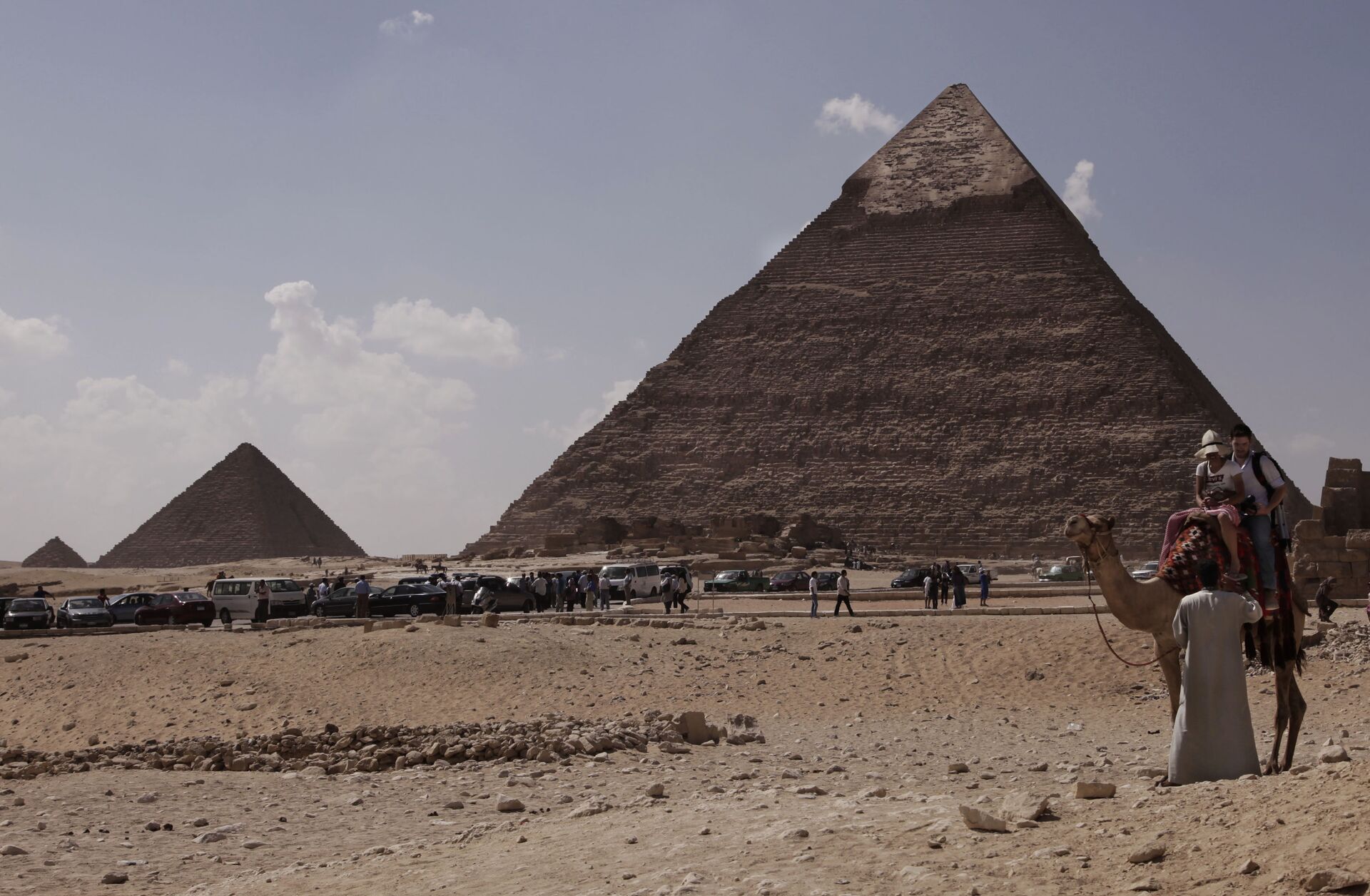Egypt Faces Food Security Challenge as Ukrainian Conflict Enters Fourth Week
09:38 GMT 20.03.2022 (Updated: 11:38 GMT 23.11.2022)

© Sputnik / Vitaliy Timkiv
/ Subscribe
Prices on wheat in the North African country, that relies on Russian and Ukrainian crops, have gone up since the beginning of hostilities on 24 February. In a bid to stabilise the market Cairo decided to boost local production, but it turned out that domestic supply cannot meet public demand.
Egypt, the world's biggest wheat importer, has already started feeling the impact of Russia's special military operation in Ukraine that began on 24 February.
Skyrocketing Prices
Over the past month, the price tag for bread has gone up and currently stands at 1.50 Egyptian pounds (roughly one dollar) per loaf, commonly known in Egypt as eish baladi. Costs for wheat products have additionally registered a spike and experts have already warned that another increase is just around the corner.
For Egypt, where a third of its population lives below the poverty line, this is a serious blow, and the International Monetary Fund (IMF) has already advised Cairo to focus on its food security issues.
To gauge how serious the situation is, Sputnik approached Egypt's Ministry of Supply and Trade for a comment, and a source within the establishment, who preferred not to disclose their name, confirmed that the "dependency on Russian and Ukrainian supplies is felt on every level".
"We are importing some 80 percent of our wheat from Russia and Ukraine. The hostilities have already caused prices to spiral, and this means that the government will need to fork out an additional $9.5 billion for the same amount of wheat this fiscal year".
Cairo might not have enough money to afford these additional costs. Even before the beginning of hostilities, the North African country was struggling to stabilise its economy - dealt a severe blow by the coronavirus pandemic. The military operation in Ukraine has aggravated the situation even further by disrupting the Egyptian tourism industry, one of the nation's main sources of income. And that prompted Cairo to take action.

Tourists ride a camel as they visit the historical site of the Giza Pyramids, in front of the Khafre pyramid, right, near Cairo, Egypt. File photo.
© AP Photo / Nariman El-Mofty
Recently, it was reported that Cairo was holding talks with the IMF over a potential loan but even if the international body agrees to unlock the necessary funds to aid the North African country, Egypt still faces yet another challenge – the disruption of wheat supplies.
Headache for Authorities
Since the beginning of Moscow's military operation, Ukrainian ports have been largely inactive. Russian wheat has also been struggling to reach the Egyptian market. In a bid to tackle this obstacle, Egypt decided to focus on the production of local wheat.
The government banned all exports of local wheat-related products for the next three months. It is currently contemplating purchasing more than six million metric tonnes (MMT) of Egyptian produce; and it is expanding the country's storage areas to accommodate that domestic supply.
The problem is that it is far from being sufficient. According to official estimates, Egypt with its more than 100 million people consume some 21 million metric tonnes of wheat per year. The supply of six MMT will leave the country starving for the remaining 15.
The Egyptian official Sputnik spoke with acknowledged that that deficit coupled with the soaring prices on wheat present a serious headache for local authorities.
In Egypt, many still remember the infamous 1977 bread riots that were triggered by wheat deficits and Cairo is determined to avoid similar events.
To calm down the masses, 88 percent of whom are registered for the bread rationing system, Cairo has already allocated $3.3 billion in its 2021/2022 budget for bread subsidies, a ten percent increase from the previous year.
The government is also studying an option to establish fixed prices for unsubsidised bread in a bid to stabilise the market. But as the hostilities in Ukraine continue, the official warns that Egypt might soon be running out of solutions.
"Egypt knows that it needs to protect its marginalised and vulnerable groups to keep them quiet", said the official. "We don't want to see them taking to the streets, and this is why we need to find solutions. And we need to find them quickly", he added.
Let's stay in touch no matter what! Follow our Telegram channel to get all the latest news: https://t.me/sputniknewsus

